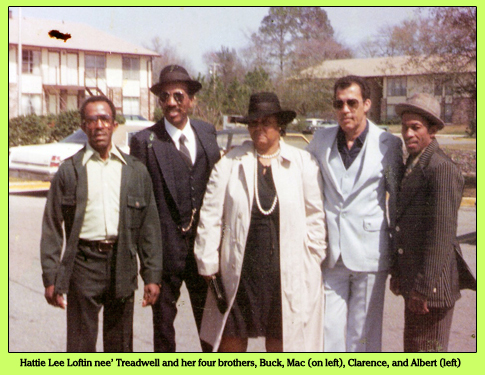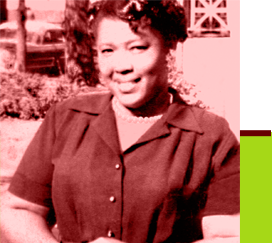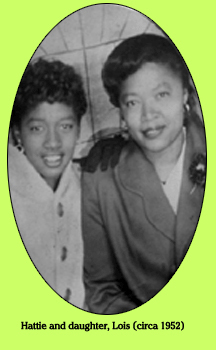A Brief Sketch of the Treadwell-Manning Family, 1899-1959
The Nineteenth Century Farmers’ Alliance began in the 1880s as a social and educational organization with the primary purpose of educating farmers on the latest agricultural techniques and protecting them against the abuses of banks that refused to lower interest rates and railroads that charged exorbitant freight fees. It emerged in the late 1880s as political organization aiming to alter the national political agenda.
The Farmers’ Alliance sponsored candidates for several governorships and 30 congressional seats. In 1890, the Farmers’ Alliance elected 160 of the 219 members of the Georgia legislature. In 1891, the Alliance helped to pass the state’s first segregation law—a comprehensive bill separating blacks and whites on the railroad. The passage of this bill marked the beginning of a decade of repression and oppression that struck down the most progressive attempts at reform of race relations made after the Civil War. As the turn of the 20th century approached, the prevailing opinion of most whites regarding blacks was that a “negro [was] first-rate to shovel dirt, a function for which he was made, but no good for much else.”
Despite these and other obstacles to progress, many blacks achieved a standard of living that they had never before experienced. At the end of the 1890s, Jim Murphy Treadwell (1874-1960) met and married Laura Wootten (1884-1960), a resident of Vienna in Dooly County, Georgia. Shortly after their marriage, Laura gave birth to their first child, Anna in 1900; a second daughter, Burnice (1903-1934) followed and a third daughter, Willie Mae (1905-1976). Early in their marriage, Jim and Laura left Vienna, Georgia and moved with their family to Norman Park. They resided briefly in Norman Park and then moved permanently to Moultrie, Georgia in Colquitt County.
Once the Treadwells arrived in Moultrie, the family acquired a small parcel of farmland and settled down to raise their children. Laura, a licensed midwife, took in laundry and delivered babies to supplement the family’s income. She earned $1.25 for washing, starching and ironing a single bundle of clothing. Delivering babies did not always enrich the family’s income, since Laura would turn no one away, black or white, if they needed her services, regardless of their inability to pay. Often Laura’s clients paid her with chickens and other farm produce. Jim handled the daily chores involved in managing a producing farm and employed several farm hands to assist him.
The Twentieth Century
At the end of World War I, the Treadwell family almost doubled in size. Anna, their eldest daughter, married Dotie Wright in 1920 and gave birth to Laura Mae that same year. Two years later, Anna had a second child, Johnny Wright (1922-?) born on October 26. Earlier that year, Laura and Jim Treadwell gave birth to their last child, Jim Murphy Junior (1922-1982) on July 7. Roman Moses and Willie Mae Treadwell Moses gave birth to Annie Willie (1922-?) on October 17. Burnice Treadwell gave birth to Hattie Lee (1922-2014) on Thanksgiving Day.
Although Burnice and Willie Troy planned to marry before the birth of their daughter, a quarrel ended the relationship. Times being what they were, Burnice instead went to live with her paternal uncle, Robert Treadwell. She gave birth to Hattie in Pearson, Georgia. Shortly after Hattie’s birth, Burnice went to reside in Cordele, Georgia. Hattie remained with her great aunt and uncle for several years. When her aunt died, Hattie went to live with her grandparents, Jim and Laura. Seven years passed before Hattie saw her mother again. By then Burnice had two other children: Clarence (1927-) and Richard (1929-2008), born the year of the stock market crash.
 In 1929, the world stood on the brink of economic ruin. World governments suspended payment on wartime debts. In Russia, Stalin began the first of his Five Year Plans for recovery. In Germany, Hitler and the Nazi Party began their rise to power. In America, “Hoover Days” were in full swing and one of the most popular songs of the day was Brother Can You Spare A Dime? By 1932, business failures numbered at least 30,000 and the unemployment level hovered between 12 and 15 million. To recovery from the economic devastation of the Crash, the country needed to make a drastic change. That change came in 1933 with the election of Theodore Roosevelt to the presidency.
In 1929, the world stood on the brink of economic ruin. World governments suspended payment on wartime debts. In Russia, Stalin began the first of his Five Year Plans for recovery. In Germany, Hitler and the Nazi Party began their rise to power. In America, “Hoover Days” were in full swing and one of the most popular songs of the day was Brother Can You Spare A Dime? By 1932, business failures numbered at least 30,000 and the unemployment level hovered between 12 and 15 million. To recovery from the economic devastation of the Crash, the country needed to make a drastic change. That change came in 1933 with the election of Theodore Roosevelt to the presidency.
Shortly after Roosevelt’s inauguration, he put into operation the New Deal with its three objectives of relief, recovery and reform. While the United States focused its attentions on recovering from the worldwide depression of the 1930s and the world moved towards World War II, the Treadwell family suffered its own private tragedy. Burnice Treadwell, always a robust woman, produced two more sons, Albert (1931-) and Mack (1933-). Burnice was pregnant with her sixth child in 1934 when she strained herself chopping wood and had a miscarriage. She died on the first Tuesday after Easter, leaving her parents to raise her five orphaned children.
After her mother died, Hattie had an unhappy life. Less than six years later, she was married and starting a family of her own. In 1940, Hattie Lee met and married Frank Mitchell (1917-1980), the son of Julia Bell and Joseph Mitchell. Before her wedding, in February, Hattie gave birth to a daughter, Annie Lois Mitchell (1940-). After their wedding, Frank and Hattie moved to Valdosta, Georgia. Frank worked for a local butcher shop. Frank and Hattie remained in Valdosta until they separated in 1959. In 1955, Hattie’s only surviving child, Annie Lois married Joseph Manning and gave birth to Barbara Jean in November.
In the 1950s, blacks began to push for the social, economic and political rights they fought to preserve during World War II and the Korean War. In the South, this push for social change increased racial tensions over such issues as segregation and voting rights. Many blacks sought the safety of big city and anonymity in the North. In 1959, encouraged by relatives already living in the North, and the need to escape a failed marriage, Hattie Lee left Georgia. She moved to Ohio and several months later, her daughter, Lois followed, bringing her three daughters, Barbara (1955-), Linda (1957-) and Darlene (1958-).






